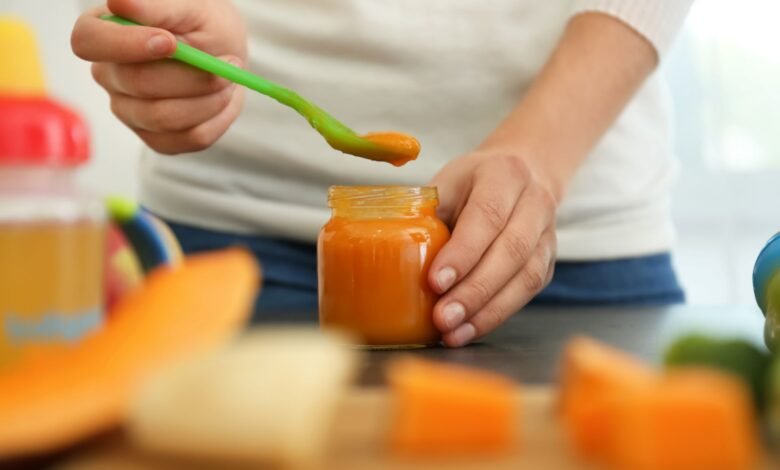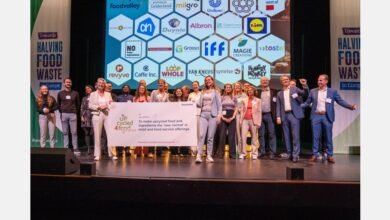‘Babies and young children are particularly vulnerable’

New research has found that 38% of non-organic baby food contains pesticides, many of which are hazardous to infants.
What’s happening?
The Guardian reported that the Environmental Working Group tested 73 baby food products from companies like Beech-Nut, Gerber, and Parent’s Choice.
The American nonprofit organization found that 22 samples had at least one pesticide, though many products showed traces of several more. However, none of the 15 organic versions analyzed contained toxic chemicals.
Apple-based baby foods were the most susceptible to having pesticide residue, while products made with blueberries, pears, and strawberries also demonstrated high rates of pesticide contamination.
Why is the pesticide residue concerning?
The EWG identified nine types of pesticides, the most common of which was captan. The organization found the likely carcinogen and its breakdown product tetrahydrophthalimide in 11 baby foods.
Other harmful pesticides include acetamiprid, fludioxonil, pyrimethanil, and imidacloprid, all of which can damage the immune, nervous, and/or reproductive systems. The remaining four pesticides do not have enough data to provide evidence of how they affect the human body.
“Babies and young children are particularly vulnerable to the health risks posed by pesticides in food — and food is the way most children will be exposed to pesticides,” EWG senior science analyst and report co-author Sydney Evans said in a statement.
The EWG also found a pesticide in 92% of non-organic cereals last year, while an organization from the U.K. uncovered crops with 10 PFAS pesticides.
What can I do about the pesticide residue?
If there’s a silver lining from the research, it’s that the pesticide rate and toxicity have fallen since the EWG detected pesticides in 53% of products in 1995.
“Any pesticide residue in baby food is concerning, but parents should feel reassured that some of the most toxic chemicals we found in our 1995 study are no longer being detected,” Evans said, adding that the research and advocacy the EWG does pays dividends.
At home, parents and caregivers can avoid pesticides by choosing organic baby food products. Olga Naidenko, a study co-author and leads children’s research for EWG, noted that organic products have far tighter regulations but are similar in price, per the Guardian.
The EWG has published guides on produce with higher and lower pesticide residues to help consumers make informed decisions.
Growing your own fruits and vegetables can also mitigate pesticide ingestion — while helping cool the planet — as there are natural solutions to pest control.
Join our free newsletter for cool news and actionable info that makes it easy to help yourself while helping the planet.
Source link




